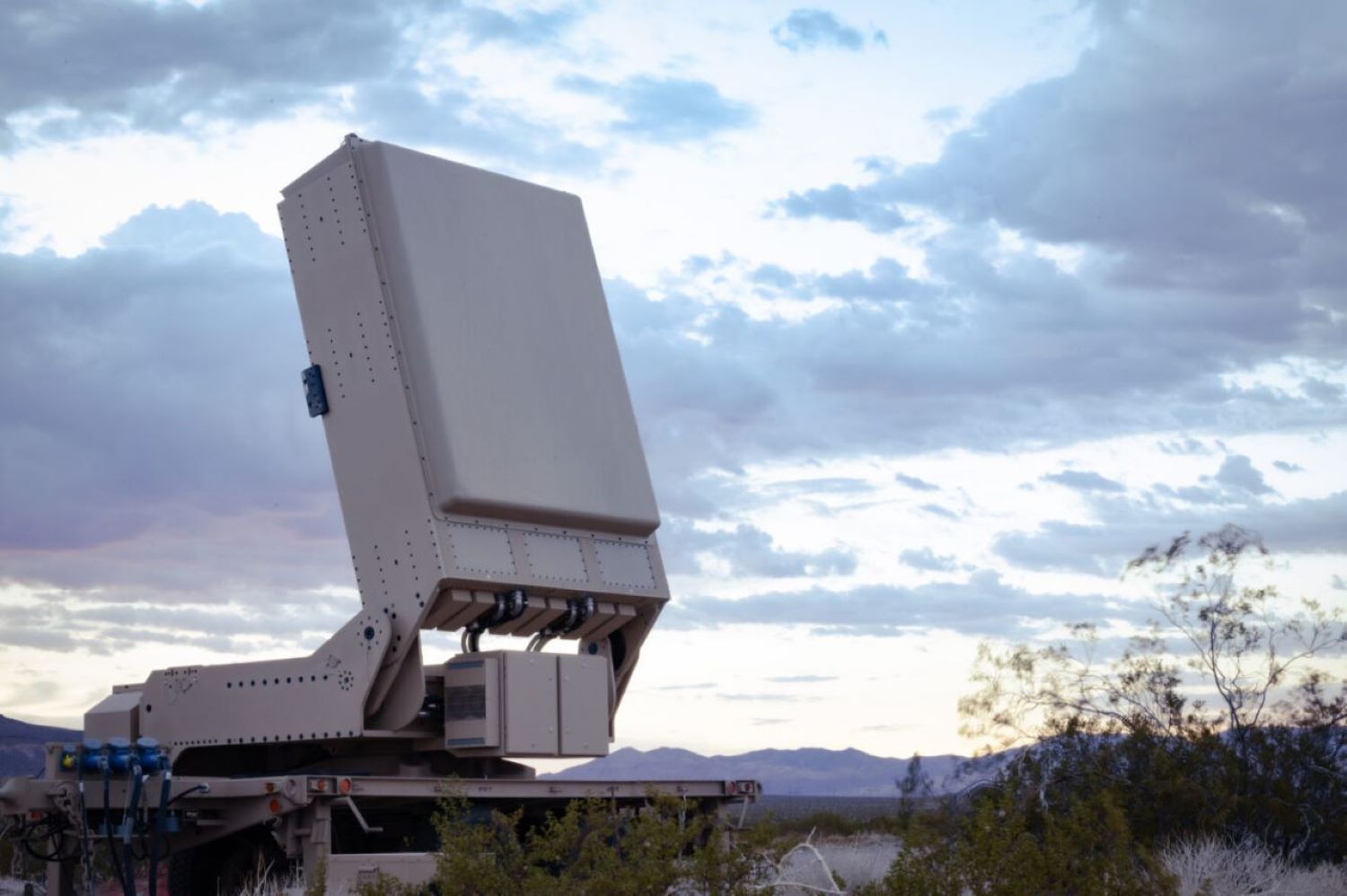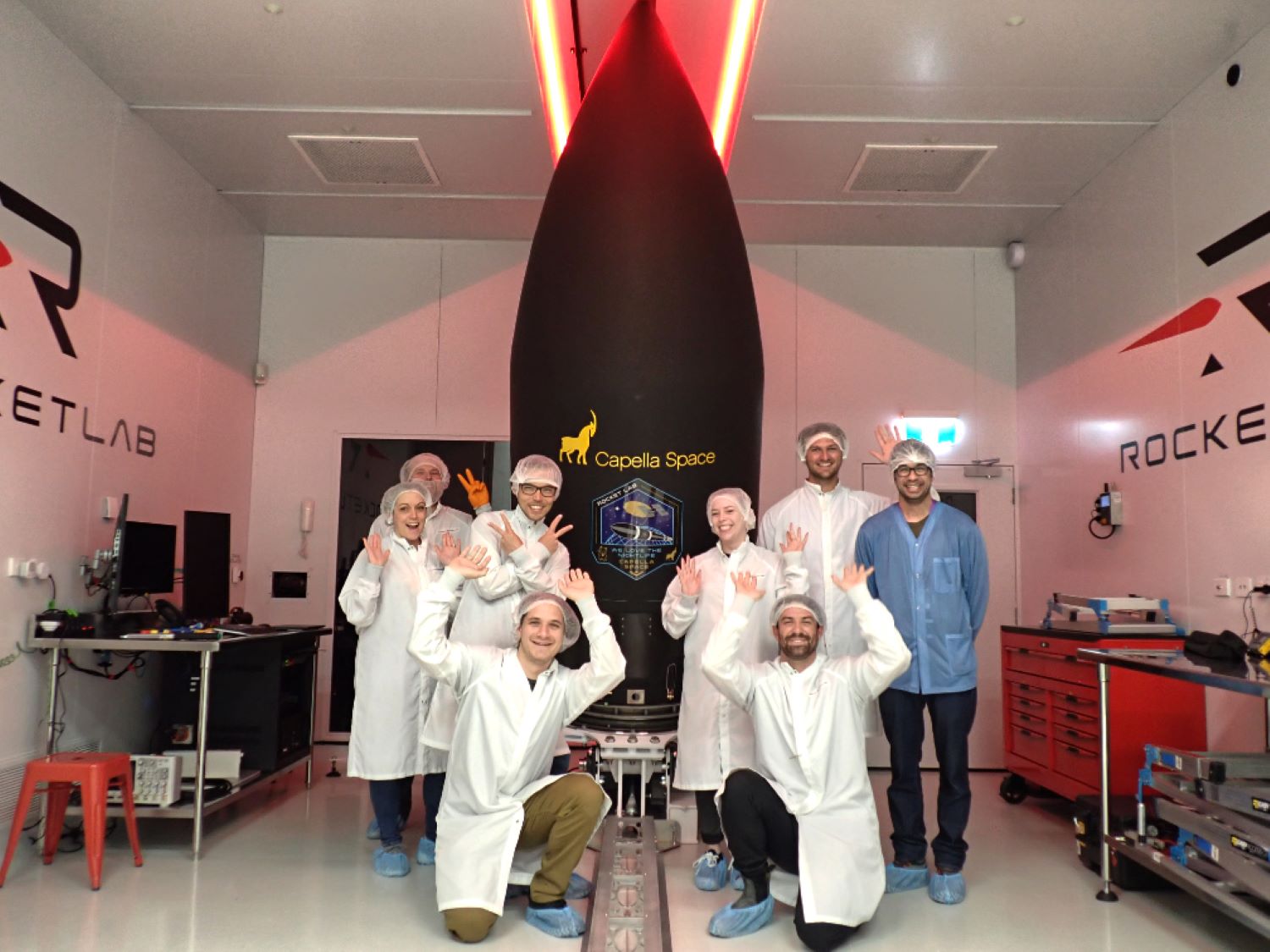Rising Stars: 11 Companies Poised to Transform National Security
The defense sector is undergoing rapid transformation, driven by technological advancements, evolving threats, and a growing demand for innovation.
As traditional defense strategies evolve, a new generation of companies and leaders is emerging, bringing fresh ideas and cutting-edge solutions to the table.
These “rising stars” are pushing the boundaries of what’s possible, reshaping how nations defend themselves and how military operations are conducted.
The Rise and Challenges of Innovative Defense Tech Companies
The defense sector is rapidly evolving, with companies developing next-gen technologies that enhance military capabilities across various domains. Key trends include advanced weaponry, vehicles, and defense systems offering greater precision and efficiency.
Manufacturing innovations like automation, advanced materials, and modular design are setting new standards, while immersive tech like VR and AR is transforming training and planning.
Cyber warfare is a growing concern, as protecting infrastructure and communication networks becomes vital. The Internet of Military Things (IoMT) is also reshaping defense strategies, integrating sensors and systems to improve operational efficiency and decision-making.
Despite the surge in innovation, defense tech companies face challenges scaling their operations. Reconciling program-focused defense requirements with product-centric commercial models can be difficult.

Defense customers often require highly customized solutions, while adapting to government contracting complexities and long timelines can be a barrier for startups. Investors also struggle with the long development cycles of defense projects, which can take 7-10 years to yield steady returns, compared to the 3-5 year timelines typical in tech.
This, along with limited government investment in innovation, makes securing funding challenging for new companies.
Nonetheless, the defense sector continues to grow, with over 1.3 million organizations and 12 million people, and new startups, averaging $13 million per funding round, are becoming key players in the industry’s future.
Top 11 Innovative Companies Reshaping National Security
Even with the challenges faced by new defense tech companies, advanced technology is transforming national security, with forward-thinking companies driving the development of solutions to address today’s defense needs.
These companies are using breakthroughs in areas like artificial intelligence, cybersecurity, unmanned systems, and more to boost defense capabilities and improve responses.
Now, let’s take a look at 11 leading companies that are making a big impact on national security.
Shield AI: Military Drones with Artificial Intelligence
Shield AI, based in San Diego, California, is a leader in defense technology, pioneering the use of AI in military drones. Their drones use advanced computer vision and machine learning to navigate and operate autonomously in complex environments, without GPS or human control.
This makes them highly effective in contested areas where traditional systems may fail. Additionally, Shield AI’s swarming technology enables multiple drones to collaborate, sharing information and coordinating their actions for enhanced mission effectiveness.

“Shield AI has developed the world’s best AI pilot and most advanced Group 3 UAS, V-BAT, for both military and commercial applications. Our Hivemind AI pilot revolutionizes civil logistics, offering efficient, autonomous cargo transportation, especially in oil and gas inspection, providing safer, cost-effective alternatives to traditional methods” the company stated.
Shield AI has raised $930 million in funding, including a recent $200 million Series F round led by top investors. This funding will accelerate the development of their AI-powered systems, like the Hivemind AI pilot, which enables autonomous drone swarms.
In terms of national security, Shield AI’s drones enhance military reach and safety by operating in high-risk environments where traditional systems may fail, such as in areas with electronic warfare or GPS jamming.
Their technology enables real-time intelligence gathering, reducing the need for human oversight and minimizing risks to personnel. Shield AI’s autonomous drones are set to transform military operations, providing a strategic advantage in complex, high-stakes situations.
“Shield AI’s autonomous systems aim to provide the smart drone swarms needed for national defense, without relying solely on human pilots,” said Ryan Tseng, co-founder and CEO of Shield AI.
Epirus: Pioneering Directed Energy Systems for Defense
Founded in 2018, Epirus has developed cutting-edge directed energy systems, including its Leonidas platform, which utilizes solid-state, long-pulse high-power microwave (HPM) technology to disable drones and other electronic threats.
“Our software-defined, long-pulse HPM systems, either fixed or semi-fixed, can integrate with other sensors and weapons platforms to provide layered short-range air defense for counter-drone and drone swarm protection,” the company stated.
Alongside this, Epirus integrates cutting-edge AI and advanced electronics into its systems to optimize performance and flexibility. Their proprietary Epirus SmartPower (ESP) platform boosts power efficiency, ensuring that their directed energy systems are both effective and sustainable.

As drone swarms and electronic warfare become more prominent threats, Epirus has raised $200 million in a Series C funding round, bringing its total funding to $287 million. The company has also formed key partnerships with defense agencies like the U.S. Army and DARPA to advance its technologies.
Notably, the U.S. Army has tested Epirus’ Leonidas system in counter-drone operations, proving its effectiveness in protecting troops and assets from aerial threats. Epirus has secured multiple contracts, including a $66 million deal with the U.S. Army for the Leonidas system, solidifying its position as a leader in directed energy solutions.

Epirus’ IFPC-HPM systems are designed to counter UAS swarms, providing crucial defense for military assets. Their Leonidas system offers 360-degree protection, while SmartPower technology optimizes directed energy performance.
These portable, cost-effective systems reduce reliance on traditional ammunition, improving logistics and responsiveness in combat.
Fortem Technologies: Leading Airspace Security with Advanced Radar Systems
Fortem Technologies specializes in advanced drone detection and interception, with its core product being the TrueView Radar Systems. These radars, including the TrueView R20, R30, and R40, offer 360-degree detection and tracking of airborne threats, ranging from compact solutions to advanced AESA (Active Electronically Scanned Array) radars.
Fortem’s DroneHunter Interceptors, like the DroneHunter F700, use AI and radar data to autonomously detect, track, and capture rogue drones. The company has raised $17.8 million from investors, including Lockheed Martin Ventures and Hanwha Aerospace, to expand its drone defense technologies
Fortem’s systems have been deployed in military operations, notably to protect critical infrastructure in Ukraine from drone attacks, and at major public events like the World Cup in Qatar.
Their technology provides vital protection for military installations, public venues, and critical infrastructure by offering customized, layered defenses that reduce false positives and collateral damage.
Portable versions of Fortem’s C-UAS systems enhance their flexibility, enabling rapid deployment in dynamic combat scenarios, allowing defense forces to address drone threats in real-time.
“The solution can be networked to cover any area and can track hundreds of objects simultaneously without causing disruption to day-to-day operations,” said the company.
Mach Industries: Advanced Materials and Manufacturing Solutions for Defense
Founded in 2022, Mach Industries specializes in hydrogen-powered UAVs and munitions, using hydrogen generation systems to provide a sustainable and efficient energy source. These systems reduce reliance on traditional fuels, which can be logistically challenging and environmentally harmful.
The company also employs advanced manufacturing techniques, including decentralized and flexible factories, to produce defense hardware. This decentralized approach enables rapid production and deployment, allowing military forces to quickly adapt to evolving threats and operational needs.
“Mach exists to build the next generation platforms that maintain an allied American edge. We will produce these platforms by the millions to deter kinetic conflict,” said the company.
Mach Industries is gaining attention for its hydrogen-powered defense platforms, attracting both investors and government agencies. The company raised $5.7 million in seed funding, with notable investors like Sequoia Capital, Marque VC, and Champion Hill Ventures.
Following that, Mach secured $85 million in a Series A round led by Bedrock Capital, bringing its total valuation to $335 million.
Mach’s hydrogen-powered UAVs have been successfully tested in military exercises, demonstrating their ability to provide sustainable energy solutions for defense operations. These innovations help reduce reliance on traditional fuels, especially for remote or extended missions, enhancing operational sustainability.
By utilizing hydrogen and advanced materials, Mach’s systems lower the costs of munitions and defense equipment, making them more economical and efficient. The ability to produce hydrogen in the field also provides military forces with greater operational flexibility, reducing dependence on vulnerable supply chains in conflict zones.
Vannevar Labs: AI-Driven Solutions for Defense Intelligence and Operations
Founded in 2019 and based in Palo Alto, California, Vannevar Labs specializes in AI-driven solutions for defense intelligence and operations. Its flagship product, Decrypt, uses AI to enhance natural language processing, helping military and policy decision-makers translate and interpret large volumes of foreign language data to target and respond to foreign actors.
In addition to Decrypt, Vannevar Labs offers tools like Serra and Revere, focused on maritime domain awareness and operations in the information environment.
Foreshadow and Overwatch are designed for non-kinetic effects and strategic competition, aiding the U.S. and its allies in deterring and de-escalating conflicts by providing advanced data collection and AI tools for mission-critical operations.
“We build software and hardware to support non-kinetic and intelligence missions across the world to help the U.S. and its allies deter and de-escalate conflict,” said the company.
As global threats grow more complex, the need for advanced AI solutions in defense is increasing. Vannevar Labs has successfully raised over $90 million in funding to support its growth and innovation efforts.
This includes a substantial $75 million Series B round led by Felicis, with participation from prominent investors such as DFJ Growth, Aloft VC, General Catalyst, Point72 Ventures, Costanoa Ventures, and Shield Capital.
Vannevar Labs’ technologies provide critical support to individuals working in high-risk areas by enhancing operational security. Their AI-driven tools allow for faster response times to emerging threats, ensuring that defense agencies can act swiftly and effectively.
This is particularly important for counterterrorism missions and other national security operations where timely and accurate information is crucial.
“We build tools that enable the U.S. to compete today and we deploy our capabilities to support active missions. We’re immersed in the current day-to-day challenges of analysis and operations, and we’re helping to understand and meet the emerging requirements for these domains,” the company shared.
SparkCognition: Enhancing Cybersecurity and Operational Efficiency with AI
SparkCognition has developed several innovative AI-driven technologies that enhance cybersecurity and operational efficiency. DeepArmor is an advanced AI-powered cybersecurity solution that protects against a wide variety of cyber threats.
“DeepArmor, at its heart, is a massively scalable data processing system in the cloud capable of generating highly accurate and efficient machine learning models to solve the malware problem,” the company stated.
Using machine learning, DeepArmor can detect and block malware, including new and unknown attacks that traditional security systems might miss.

SparkPredict, a division of SparkCognition, helps organizations prevent equipment failures by analyzing sensor data to predict when machines are likely to break down. This allows for proactive maintenance, reducing downtime and improving operational efficiency.
The company has raised over $300 million in funding, including a $123 million Series D round that valued SparkCognition at over $1.4 billion. This strong investor backing has enabled the company to accelerate R&D, expand its product offerings, and scale its operations to meet increasing market demand.
“Our AI solutions address core infrastructure challenges, including asset optimization, preventing zero-day cyberattacks, augmenting skill gaps, and enabling climate change initiatives,” said Amir Husain, Founder and CEO of SparkCognition.
“This additional capital will enable us to deepen our subject matter expertise, enhance our patent portfolio, and accelerate the diversity of problems we solve for customers, maximizing their return on investment,” he added.
SparkCognition has strengthened its market position through partnerships with industry leaders like Boeing and the U.S. Department of Defense. These collaborations validate the effectiveness of its AI solutions and open new markets for co-developing advanced technologies.
In national security, SparkCognition’s AI-powered cybersecurity solutions play a crucial role by detecting and responding to cyber threats in real time. Using predictive analytics, these tools identify potential risks before they occur, helping protect critical infrastructure and ensuring its continued operation.
This proactive approach supports national stability and safety while optimizing resource management, contributing to the efficient functioning of infrastructure, which is essential for maintaining national security.
Capella Space: High-Resolution Satellite Imagery for Defense and Intelligence
Founded in 2016, Capella Space has made strides in technological innovation, particularly with its SAR technology. This advanced technology allows for high-resolution imaging regardless of weather conditions or time of day.
The company shared, “Capella Space delivers high-quality SAR data that provides responsive insights you can trust. Our advanced Concept of Operations (CONOPS) offers unparalleled revisit rates and flexible collection schedules, ensuring you get the data you need when it matters most.”
Capella’s satellites can see through clouds, smoke, fog, and darkness, delivering clear and detailed images. This makes them essential for defense and intelligence operations, ensuring that surveillance and reconnaissance missions can continue without disruption and providing a reliable source of high-quality data.
Capella Space has created an automated platform for tasking satellites, delivering real-time insights that enhance decision-making. Their advanced SAR technology meets the rising demand for high-resolution satellite imagery in defense and intelligence.
The company raised $97 million in a Series C round led by NightDragon, highlighting strong investor confidence in its technology.
Additionally, Capella has formed partnerships with defense agencies, including a $15 million contract from the U.S. Air Force to enhance its SAR technology.

Capella Space is transforming surveillance for national security by offering continuous monitoring, a key capability for defense and intelligence agencies. Real-time satellite imagery allows for fast, informed decision-making, improving operations and providing a strategic advantage.
SAR imagery plays a vital role, offering detailed insights such as material properties, elevation maps, and precise movement or changes. This level of detail helps intelligence agencies analyze and interpret data more accurately.
Capella’s high-resolution imagery supports a broad range of defense and intelligence missions, including border security, counterterrorism, and disaster response, ensuring these critical operations are effective and efficient.
Additionally, Capella’s technology enables global monitoring of events like military movements and natural disasters, helping create a comprehensive operational picture essential for national security.
Scale AI: Data Labeling and AI Training Services for Defense Applications
Founded in 2016, Scale AI is known for providing accurate data labeling and annotation, which is key to training AI models. Their platform blends machine learning with human oversight to ensure the data is of the highest quality.
“Our vision is one of data abundance, where we have the means of production to continue scaling frontier LLMs many more orders of magnitude,” Scale AI’s CEO and co-founder, Alexandr Wang, said.
Additionally, Scale AI offers comprehensive AI training services that help organizations develop and refine their AI models. These services include data curation, model evaluation, and continuous improvement, ensuring that AI systems perform optimally in real-world scenarios.
Scale AI enables organizations to build robust AI models that can adapt to changing conditions and requirements by providing end-to-end support.
Scale AI has successfully raised over $1 billion in funding, with a recent Series F round valuing the company at $14 billion. Key investors include Amazon, Meta, and Accel, reflecting strong confidence in Scale AI’s technology and its potential to transform AI development across various sectors.
Before this funding round, Scale AI had raised about $600 million over eight years. This included a $325 million Series E in 2021, which valued the company at around $7 billion – double its valuation from the previous year’s Series D.

Scale AI helps improve national security by providing high-quality, accurately labeled data for training AI models. This data is key to creating AI systems that work effectively in complex and high-pressure situations, like defense operations.
The precision and accuracy of Scale AI’s data ensure that AI models are equipped to handle real-world challenges, improving the reliability and performance of applications used in national security.
By enabling better decision-making and operational outcomes, Scale AI’s solutions help defense agencies efficiently process and analyze large datasets—key for managing vast amounts of information in fast-paced situations.
“We are still looking at ways to provide more enterprise support, especially as things like the NSM that was just released. That’s one of the areas that we’re leaning forward on being able to try and help support the DOD’s adoption of this technology, again, in a responsible manner,” Dan Tadross, Scale AI’s head of federal delivery and a Marine Corps reservist, said.
Applied Intuition: Pioneering Simulation Software for Autonomous Vehicle Testing
Founded in 2017 and based in Mountain View, California, Applied Intuition develops software for testing self-driving cars. Its Simulation and Validation Platform supports engineering teams throughout the entire development cycle, from initial simulation to data exploration and validation.
The platform accelerates the development process while enhancing safety. By offering a complete set of tools, Applied Intuition ensures seamless integration across all stages, helping identify and resolve issues early for more reliable autonomous systems.
Applied Intuition’s Generative AI Data Engine creates synthetic data to enhance training datasets, improving the performance of machine learning models used in self-driving cars and driver-assistance systems.
The company raised over $250 million in a Series E funding round, bringing its valuation to $6 billion, with new and existing investors including Andreessen Horowitz, General Catalyst, Mary Meeker at BOND, and others.
Their simulation software has been crucial in advancing autonomous vehicle technologies, with companies like Toyota and GM using it to improve the accuracy and safety of their self-driving systems.
Applied Intuition’s tools allow defense agencies to test autonomous systems virtually, reducing risks and speeding up development while cutting the need for costly physical tests, making the process more cost-effective.
To enhance its role in defense, the company formed a National Security and Defense Advisory Board with former U.S. Department of Defense leaders.
Their tools also support the training and testing of autonomous vehicles, such as drones and ground vehicles, which are increasingly vital in modern warfare.
Nominal: Rapid Testing and Deployment of Complex Hardware Systems
Founded in 2022, Nominal’s platform aims to transform the development, testing, and deployment of complex hardware systems. Its Engineering Data Infrastructure bridges the gap between machines and human experts by analyzing and visualizing mission-critical hardware data, providing engineers with the insights needed to make informed decisions.
Nominal also uses advanced manufacturing techniques, including decentralized and flexible factories. These adaptable factories ensure a reliable supply chain and the ability to quickly scale production as needed, helping Nominal meet the demands of modern warfare and other critical applications while reducing supply chain risks.
Their platform is indispensable for the rapid development and deployment of complex systems, addressing the urgent need for advanced hardware capabilities. Nominal has successfully raised $32.8 million in funding, including a substantial $20 million Series A round.
Cameron McCord, Co-founder and CEO of Nominal, shared, “I would love nothing more than to bring the Nominal product to American and Western allies. Time is ticking and we’ve been trying to move as fast as we can.”
Nominal’s platform has proven effective in high-stakes environments like flight tests and space operations, enabling rapid testing and validation of critical hardware systems.
The platform plays a key role in national security by speeding up the testing and deployment of advanced defense systems, ensuring they are ready to respond quickly to emerging threats. Nominal works closely with the Department of Defense and the U.S. Air Force, ensuring its platform meets the high standards required for defense applications.
This partnership shows the importance of rapid deployment technologies in modern warfare, helping the defense sector stay ahead of potential threats.
Unifize: Enhancing Communication and Collaboration in Defense Projects
Founded in 2016, Unifize enhances communication and collaboration across industries, including defense. Its platform features Automated Workflows, which streamline operations by automating routine tasks and ensuring compliance. These workflows ensure the right people are involved at the right time, improving team efficiency.
Another key feature, Dynamic Ownership, enables seamless transfer of responsibility for tasks, enhancing accountability by clearly defining ownership. Additionally, Seamless Integration allows the platform to easily connect with existing systems, enabling real-time updates and collaboration.
“By unifying your people, processes and information, Unifize enables you to manage risk and compliance, drive operational efficiency, and accelerate innovation simultaneously. You can start with any of our validated and compliant products for document management, quality management, manufacturing execution and product lifecycle management,” said the company.
To date, Unifize has raised $600,000 in seed funding and has formed partnerships with various organizations to enhance its platform and expand its market reach.
Unifize has been successfully implemented at Biovation Labs, where it has significantly improved operational efficiency. The platform’s high-level visibility and real-time collaboration capabilities have enabled the company to streamline its processes and reduce costs.
At Harmonic Bionics, Unifize has been instrumental in streamlining change control, facilitating communication, and ensuring robust documentation for regulatory compliance. This implementation has led to substantial operational enhancements and faster time-to-market.
Unifize’s platform ensures comprehensive and up-to-date records, which are crucial for meeting regulatory requirements and accurately tracking changes. Its tools improve communication and coordination among defense teams, making projects more efficient and speeding up the deployment of critical defense technologies.
By customizing solutions to meet the unique needs of national security projects, Unifize enhances the effectiveness of its tools, addressing the specific challenges of defense work. The platform’s flexible ownership feature helps manage tasks efficiently and maintains accountability throughout the project.
Unifize also supports real-time collaboration and provides high-level visibility, enabling defense teams to respond quickly to new threats and adapt to changing situations, maintaining an edge over potential adversaries.









